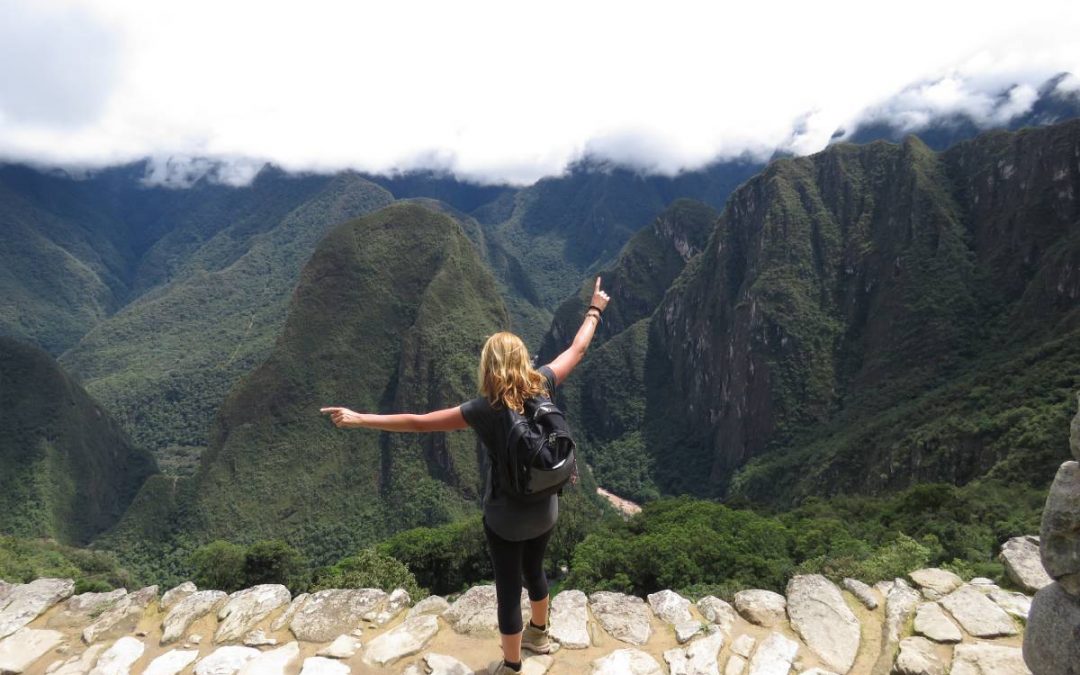When did we start chasing “happiness” and why? As long as “happiness” is a destination and something to get to, it will never be yours, at least not for too long. It’s like an unrequited love that is sometimes present but often out of reach. It comes and it goes as it pleases. So why chase it?
Dop Draper of Mad Men said it succinctly,
“What is happiness? It’s a moment before you need more happiness.”
In order for us to fully grasp this “don’t-try-to-be happy-to-be-happy” thing, we first have to define what happiness really is and what it isn’t.
DEFINING HAPPINESS
Happiness is something that’s not so easy to define. There’s no one way to describe it and it doesn’t have a formula. What can make me happy is different from what can make you happy. It often changes too. What made me happy when I was ten (like a cone of ice cream), doesn’t have the same effect on me now.
How we define happiness even gets harder when it’s being sold to us.
“Happiness” has been marketed by many industries as if it’s some attainable goal we can achieve and have forever. We can’t blame them. That’s how they earn money. Most of them promise to make us happy if only we buy this or that. We know that’s rubbish but when we’re bombarded by these messages every single day, they get embedded in our subconscious.
Media has definitely impacted how we think, especially on the concept of happiness. When we go to Instagram, our feeds are loaded with “happy” posts by friends and advertisers.
A friend’s post of her holiday in Tuscany will make us automatically assume that they’re actually happy… because seriously, who wouldn’t be happy if they’re in Tuscany? (But let’s not forget that Anthony Bourdain was depressed and committed suicide even if his job was traveling the world).
Scroll, scroll, scroll.
We see an ad of a happy family in their beautiful home. It would make us want to have a luxurious home too because who wouldn’t be happy if they’re living in a mansion? ( But I’m sure many “happy” people are sulking in their multi-million dollar homes right now).
SO WHAT IS HAPPINESS, REALLY?
On a more basic definition, happiness is an emotion —no more or less than sadness, anger, fear or disgust. And for this reason, it cannot be pursued.
The same way we can’t pursue sadness or fear. They’re emotions that come and go…they’re fleeting. It’s not something that you can turn into a project or a goal because it’s not something that can be achieved in itself.
I cringe when I hear “Do what makes you happy” or “Follow what makes you happy”. If we follow these types of advice, not only will we end up more lost and confused, we (and society as a whole) will not progress. We’d all just be in our pajamas drinking warm milk at 11 am with dishes piled up in the sink.
When I think of happiness, I think of a tree.
Happiness can be compared to the leaves of a tree—not the trunk and definitely not the roots. Leaves grow and wither and grow again but what keeps the tree alive isn’t the leaves. You can remove all the leaves of any tree and it will be fine. It can grow its leaves back again.
A MUCH better compass for a good life is our soul.
Our soul is like the roots of the tree. I know it sounds a little too zen but it’s true. Honoring and following what our soul (roots) tells us is the way to have a life well-lived so we can have more happiness (leaves).
The goal then is not to have many leaves and to cling to all of them, it is to create the conditions for happiness to flourish by building a fertile ground for our soul to grow.
The leaves— our happiness— are just a by-product of a life well-lived.
Soooo, I suggest swapping “Happiness” with becoming Peaceable.
Peaceable: (adjective) disposed to peace, free from strife or disorder. I have heard peaceable referred to as contentment, but I like peaceable because sometimes contentment is associated with being OK with the status quo or settling for less and that is by far not what peaceable means. Peaceable is exactly what it sounds like peace-able. That your natural default becomes peace. But instead of being free of strife or disorder, we learn to dance with whatever is and whatever comes.
Here’s a short guide to becoming Peaceable…
1. Be truly okay with not being happy
Why do we have this need to be happy all the time? Wipe away that fake smile and just relax. You can still enjoy life even if you’re not happy.
Instead of trying so hard to be happy and to remain happy, we should embrace all the other emotions (there are 27 of them) because they’re part of the human experience! If you feel sad today, acknowledge Sadness. Make it some tea and ask why it’s paying you a visit. If you hear no response, then maybe you can just sit with it, no matter how uncomfortable you get, because that’s part of your wholeness.
Negative emotions are not as bad as we think. They actually provide us clues of who we are and what we want to be.
When we feel anger, it can help us learn about our boundaries and triggers.
When we feel envy, it can give us a clearer view of the life we want to live.
Although happiness feels good, it doesn’t force us to learn more about ourselves and push for the life we want. Sad-making events in our lives can actually be a fuel for greatness. It’s quite a blessing to experience other emotions aside from happiness because we can learn a lot about ourselves when we’re not just happy.
Learning more about ourselves—our true selves—can help us get in touch with our soul. Don’t shoo away “bad vibes” because they’re not comfy feelings. They’re useful for your growth.
2. Stop equating happiness to pleasure
We live in a culture that puts so much emphasis on happiness, the superficial kind anyway.
According to a study on culture and happiness, in the U.S., happiness is often seen as an individual pursuit: chasing the best career, buying stuff and expecting all of that to lead to happiness. That sets up Americans for a lifetime of letdowns.
Don’t get me wrong. Pleasure is something we also owe ourselves to experience. A life without pleasure is definitely not worth living but if we live mainly for pleasure, we’ll end up feeling empty. And you know what? This feeling of emptiness, not sadness, is the opposite of happiness.
As the feeling of emptiness gets worse and worse, we’ll try to cure it with more pleasures. Harder, better, faster, stronger…just to feel more “happiness.” Then we get numb.
This is the reason why there are many rich, famous, and powerful people who aren’t happy at all. How sad it is that “happiness” is within their reach, but they still find themselves wanting. The thirst is still not quenched. Happiness cannot be bought.
Pleasures can cause happiness sometimes but it’s not a surefire way to get it.
3. Work on your life purpose
A 27-year study says that the one thing that is key to happiness (AKA becoming truly peaceable) is a sense of purpose and meaning.
Are you living a life with purpose? Are you dreaming bigger dreams? Are you making projects that light up your soul? Are you making sacrifices that make you feel they’re worth it?
When we do something we’re truly passionate about, something we feel like our life’s calling, or something that’s really close to our hearts, we’ll notice that we’ll need pleasures less and less. That’s because we derive our contentment not from things outside of us, but from being in the flow of our purpose.
Keep in mind that when we’re pursuing something we’re really passionate about, it’s not all rainbows and butterflies. Not at all!
When you try to write a novel, for example, you get up every single morning to write. You type, type, type away even though you may want to snuggle in bed with your baby. We do it because there is a higher calling, beyond what we feel at the moment.
4. Be
There is a funny buddhist saying, “Don’t just do something, sit there!”
We’re so preoccupied with trying to build a good life that we fail to experience life fully as it happens.
We should learn to be truly present as much as possible to what is happening at the moment WHILE it’s happening, instead of mulling over the past or worrying about the future. It’s unfortunate that a lot of times in our life, we get to do something and only realize later how much we truly enjoyed it. We should learn to enjoy moments while they’re happening.
Spend deliberate time being and not doing.
When you’re eating, be in that moment. You have no other job than to eat and really taste your food while you’re eating.
When you’re drinking, really feel the water go down your throat.
And when you’re walking, really feel your feet when they touch the ground.
Be in the moment, be present, and let life happen to you.
_________________________________
There is no point in chasing happiness because when we do catch it, it will eventually slip through our fingers. It’s a basic fact of life. And when that happens, we would want to chase another kind of happiness, and another, and another.
Happiness is the moment right before we need more happiness, as they say.
Another way to think of it is that “happiness” is often treated as a destination. Once you’ve arrived at happiness, you’re happy for a while and then want to go somewhere else to gain more happiness and that place is continuously elsewhere and often out of reach. Becoming peaceable is all about the journey…and one that is much more sustainable and ultimately more satisfying.



